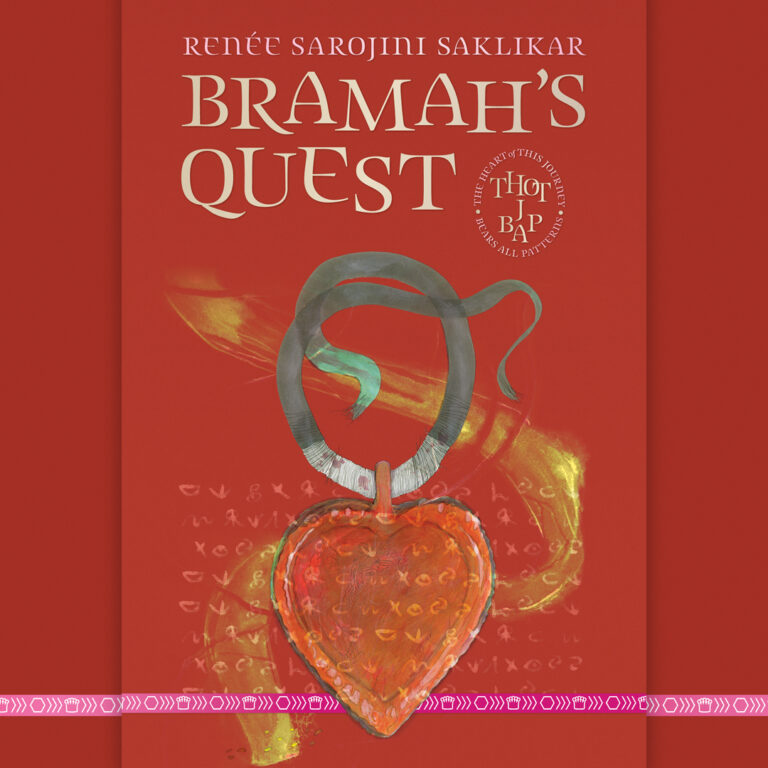Book Two of the THOTJBAP series
by
The year is 2087 and the time-travelling demigoddess, Bramah, a locksmith, is back on planet Earth, helping seed savers and resisters survive climate change and global inequality. Bramah is on a quest to find her people, including the little boy Raphael, last seen at the end of Bramah and the Beggar Boy (2021). Hailed as “brilliant and masterful, timely” (Kerry Gilbert), this epic fantasy in verse connects readers to themes of eco-catastrophe, injustice and resilience.
Moon Song at High Tide
Of your many losses, colloidal face:
scars turned to night-river reflections, fierce
polluted waters, effluent, old mills
speaking in an undertow dialect.
Of your many losses, sly grinning face
shredding clouds, rushing against that other
face that is no face, far future, oak box
blackened with trouble, ground into granite
empty and full, filled with discarded dreams.
My heart, no cedar-lined hope chest, clambers
empty and full, fragrant lost seasons call
words into signs, six-sided, pushing waves
time’s current forward, back, of many lost.
My heart rests in your laughing waters, gone.
"How is the long poem made long? Renee Sarojini Saklikar’s cubist epic THOT J BAP fits jewelled tesserae to jewelled tesserae, thereby unbinding knots, picking cosmic locks, and unleashing story-seeds scattered across entangled revolutionary times. In this she expresses the longing of the long poem—the yearning after World and World Making, the resistance to conclusion, and the musical inclusion of everything the poet is able to include. This is the first epic poem of climate change: the future is already being sung into the record."





